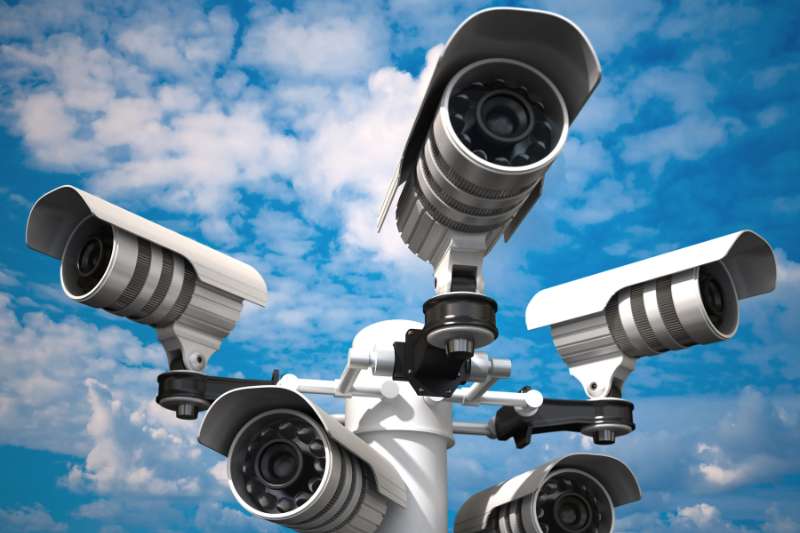The Dystopian Efficiency of Tech-Driven Surveillance: From Undocumented Immigrants to Speeding Tickets
In an era obsessed with efficiency, the rise of surveillance technologies developed by companies like Palantir Technologies illustrates a troubling paradox: these tools offer unmatched precision and control, yet often sacrifice civil liberties and democratic values in the process. Originally built to support national security efforts, Palantir’s data platforms have increasingly been repurposed for domestic law enforcement and immigration surveillance—frequently targeting the most vulnerable.
But what if we applied this same logic to everyday infractions like speeding? Imagine a world where going 41 in a 40-mph zone automatically triggers a fine, deducted from your bank account in real time. No warnings. No appeals. Just automated punishment at scale. Efficient? Unquestionably. Ethical? Deeply problematic. This thought experiment reveals a disturbing trend: powerful technologies are often wielded not to uplift but to control—particularly those least able to resist.
The Logic of Palantir’s Surveillance Machine
Palantir’s core innovation lies in massive-scale data aggregation and predictive analytics. Its software platforms, such as Gotham and Foundry, enable governments and corporations to integrate disparate datasets—social media activity, biometric records, phone metadata, financial transactions—into a unified view of individual behavior. Initially deployed in counterterrorism and defense contexts, this infrastructure now underpins operations in immigration enforcement, law enforcement, and public health surveillance.
In immigration, for instance, Palantir has worked closely with U.S. Immigration and Customs Enforcement (ICE), helping agents locate and deport undocumented individuals. The system triangulates data from DMV records, utility bills, license plate readers, and even social media check-ins to build profiles and predict behavior. This is surveillance with surgical precision—cold, calculating, and largely unaccountable.
Now apply this same logic to something seemingly mundane: speeding violations.
Imagine every American roadway equipped with AI-enabled cameras and connected to real-time financial systems. If your car exceeds the posted speed limit by even 1 mph, the system registers the violation, captures your plate, calculates the fine, and deducts it automatically. No human discretion. No chance to explain you're rushing your child to the ER. No opportunity to appeal.
This system could eliminate speeding entirely—but at what cost? Such efficiency would dismantle the human element in law enforcement, erode privacy, and reduce citizens to behavior-regulated nodes in a massive data network.
Efficiency vs. Humanity: The Dystopian Trade-Off
The speeding-camera scenario encapsulates a deeper societal issue: the fetishization of efficiency at the expense of empathy. Technologies like Palantir’s are rarely wielded equitably. Immigration surveillance disproportionately targets undocumented workers—a politically voiceless demographic. Similarly, fully automated speeding enforcement would disproportionately harm low-income drivers, who are least equipped to absorb repeated fines and most reliant on car travel for survival.
Automated red-light and speed cameras already exist in hundreds of U.S. cities, but expanding them into an AI-dominated system with real-time penalties would turn cities into surveillance zones rivaling Beijing. China’s social credit system—where every action affects your trust score—is often critiqued by Western analysts. Yet ironically, the U.S. could arrive at a similar destination via a different route: corporate surveillance capitalism, not government authoritarianism.
This privatized dystopia would be driven by tech companies marketing “solutions” to government agencies desperate for cost-cutting and public safety optics. Palantir’s marketing emphasizes order, transparency, and accountability—but only for the governed, not the governing.
The Political Calculus of Targeting the Powerless
This pattern of targeting the powerless is not incidental—it’s strategic. Tech companies understand that the least resistance comes from those with the least political influence.
Undocumented immigrants can’t vote. Foreign aid recipients lack lobbying power. Speeding drivers struggling with medical bills or minimum-wage jobs can’t mount legal challenges. Meanwhile, the wealthy simply absorb fines or use private apps to avoid detection.
As referenced in your original prompt, Elon Musk has proposed slashing U.S. foreign aid programs—another move that, while framed as fiscal responsibility, targets populations with no voice in American politics. Whether it’s Palantir’s ICE tools or theoretical speeding surveillance, the consistent logic is clear: use new tech to “solve problems” that don’t affect the politically powerful, thereby avoiding regulatory scrutiny and ensuring scalability.
Extrapolating the Trend: Where Does This Lead?
If this trend continues unchecked, the future could see total behavioral surveillance integrated into every aspect of daily life:
-
Jaywalking? Camera detected. Fine issued.
-
Library book overdue? Auto-debited with a surcharge.
-
Late utility payment? Impacts your digital trust score.
-
Elevated heart rate detected by your smartwatch? Flagged for risk by your health insurer.
-
Social media post supporting protest activity? Flagged for review by an automated risk system.
Already, the U.S. Federal Trade Commission (FTC) has raised concerns about insurers using fitness trackers and algorithms used to assess creditworthiness, raising profound questions about consent, bias, and oversight.
Add to this the rise of facial recognition technologies like Clearview AI, the use of Ring doorbells by police departments, and AI-driven hiring tools, and the picture becomes clearer: a growing convergence of data, automation, and behavioral control—all outside the public’s informed consent.
The Irony of the Tech Libertarian
Many tech elites champion libertarian ideals—opposing government regulation, advocating free speech, and promoting personal freedom. Yet they build tools that empower the very surveillance state they claim to fear.
They oppose state overreach in theory but enable it in practice, monetizing every aspect of human behavior through AI-powered dashboards and predictive models. They dream of colonizing Mars but build digital prisons on Earth.
A Call for Resistance: Reclaiming Human-Centered Technology
The solution is not to abandon technology—but to reclaim it for humanity. That requires:
-
Robust Regulation: Strong federal privacy laws, algorithmic transparency mandates, and public oversight boards.
-
Due Process: No system—no matter how efficient—should bypass human judgment, appeals, or context.
-
Public Awareness: Mass education about the dangers of unchecked automation and how it disproportionately affects the vulnerable.
-
Democratic Design: Technologies must be designed with participation from those most affected—immigrants, gig workers, marginalized communities—not just engineers and venture capitalists.
Technological progress without ethical grounding is not progress—it’s regression in disguise.
Conclusion: Surveillance Is Not Safety
The speeding camera thought experiment is a metaphor for a broader truth: when efficiency becomes the end rather than the means, freedom is the casualty.
If every action is monetized and monitored, if justice is replaced by automation, and if technology continues to target those with the least recourse, then we are not building a better society—we’re building a smarter cage.
The path forward demands vigilance, empathy, and a reassertion of human dignity at the center of the digital age.
तकनीकी निगरानी की तानाशाही दक्षता: अवैध प्रवासियों से लेकर तेज़ी से गाड़ी चलाने तक
आज के युग में, जहाँ हर चीज़ में दक्षता को प्राथमिकता दी जा रही है, वहाँ कंपनियों जैसे Palantir Technologies द्वारा विकसित निगरानी तकनीकों में एक खतरनाक विरोधाभास छिपा है—ये उपकरण अद्वितीय सटीकता और नियंत्रण प्रदान करते हैं, लेकिन अक्सर व्यक्तिगत स्वतंत्रता और लोकतांत्रिक मूल्यों की कीमत पर।
Palantir की डेटा एनालिटिक्स प्रणालियाँ, जो मूलतः राष्ट्रीय सुरक्षा के लिए विकसित की गई थीं, अब घरेलू कानून व्यवस्था और प्रवासन निगरानी जैसे विवादास्पद क्षेत्रों में प्रयुक्त हो रही हैं—और अधिकांशतः सबसे कमजोर वर्गों को निशाना बना रही हैं।
अब सोचिए कि यदि इसी तर्क को हम रोज़मर्रा के एक छोटे-से अपराध, जैसे कि तेज़ गति से गाड़ी चलाना, पर लागू करें—तो क्या होगा? कल्पना कीजिए कि कोई गाड़ी अगर 40 की सीमा में 41 किमी/घंटा की रफ्तार से चल रही हो, तो उसी पल उसका चालान कट जाए और जुर्माना सीधे बैंक खाते से कट जाए। न कोई चेतावनी, न अपील की गुंजाइश, न कोई मानवीय निर्णय।
दक्षता? निश्चित रूप से। नैतिकता? बेहद संदिग्ध।
यह विचार प्रयोग एक गहरी प्रवृत्ति को उजागर करता है: शक्तिशाली तकनीकों का उपयोग लोगों को सशक्त करने के लिए नहीं, बल्कि उन्हें नियंत्रित करने के लिए किया जा रहा है—खासतौर पर उन लोगों पर जो सबसे कमज़ोर हैं।
Palantir की निगरानी प्रणाली का तर्क
Palantir की मुख्य शक्ति है बड़े पैमाने पर डेटा एकत्रीकरण और पूर्वानुमानात्मक विश्लेषण। इसके प्लेटफ़ॉर्म जैसे Gotham और Foundry, अलग-अलग स्रोतों—सोशल मीडिया, बायोमेट्रिक रिकॉर्ड, फोन डेटा, वित्तीय लेन-देन—को एकीकृत कर किसी भी व्यक्ति की गतिविधियों की स्पष्ट तस्वीर पेश करते हैं।
प्रारंभ में आतंकवाद-रोधी अभियानों में इस्तेमाल हुई यह प्रणाली अब अमेरिका में प्रवासन निगरानी और कानून प्रवर्तन में काम आ रही है। उदाहरण के लिए, Palantir की तकनीक अमेरिकी ICE एजेंसी को अवैध प्रवासियों को ट्रैक कर हिरासत में लेने में सहायता करती है। यह तकनीक DMV रिकॉर्ड, बिजली के बिल, लाइसेंस प्लेट डेटा और सोशल मीडिया तक का विश्लेषण कर सकती है।
अब सोचिए यही प्रणाली अगर स्पीडिंग टिकट के लिए उपयोग की जाए तो?
हर सड़क पर कैमरे, जो AI के जरिए आपकी गति रिकॉर्ड करें, आपकी गाड़ी की नंबर प्लेट पहचानें, और जैसे ही सीमा पार हो, जुर्माना काट दें। किसी मानवीय निर्णय की जरूरत नहीं, न कोई अपील, न कोई संदर्भ—जैसे आप अस्पताल जा रहे हों।
यह प्रणाली स्पीडिंग को लगभग शून्य तक ला सकती है—लेकिन इसकी कीमत है:
गोपनीयता की समाप्ति, मानवीय विवेक की अनुपस्थिति, और एक ऐसे समाज का जन्म जो हमेशा निगरानी में जीता है।
दक्षता बनाम मानवता: एक तानाशाही समझौता
यह उदाहरण एक व्यापक समस्या की झलक देता है: दक्षता के प्रति आसक्ति, मानवता की कीमत पर।
Palantir की तकनीक केवल अवैध प्रवासियों की पहचान नहीं करती—यह एक ऐसे समूह को निशाना बनाती है जिसके पास कोई राजनीतिक शक्ति या कानूनी सुरक्षा नहीं है।
इसी तरह, पूर्णतः स्वचालित स्पीडिंग निगरानी प्रणाली सबसे ज़्यादा नुकसान गरीबों को पहुँचाएगी—जिनके पास न तो जुर्माना भरने के साधन हैं, न ही कानूनी चुनौती देने की सुविधा।
यह कोई काल्पनिक डर नहीं है। अमेरिका में पहले से ही रेड-लाइट कैमरा और टोल-स्कैनर जैसी सीमित निगरानी प्रणालियाँ सक्रिय हैं। अगर इन्हें Palantir जैसी जटिल तकनीकों से जोड़ दिया गया तो अमेरिका एक निगरानी राज्य में बदल सकता है जो चीन के सामाजिक क्रेडिट सिस्टम को भी पीछे छोड़ देगा।
अंतर सिर्फ इतना होगा कि यह सरकारी तानाशाही नहीं, बल्कि निजी कंपनियों द्वारा संचालित निगरानी पूंजीवाद होगा—जहाँ मुनाफा, सुरक्षा से ज़्यादा प्राथमिकता पाएगा।
कमज़ोरों को निशाना बनाने की राजनीतिक गणना
इस निगरानी तर्क में एक गहरी राजनीतिक चालाकी भी छिपी है: किसे निशाना बनाया जाए।
Palantir जैसी कंपनियाँ जानती हैं कि सबसे कम प्रतिरोध वहीं मिलेगा जहाँ राजनीतिक शक्ति सबसे कम हो।
-
अवैध प्रवासी वोट नहीं कर सकते।
-
विदेशी सहायता पाने वाले देशों की कोई लॉबी नहीं होती।
-
कम आय वाले चालकों के पास अपील या वकील रखने की सुविधा नहीं होती।
आपके मूल बिंदु की तरह, जब एलन मस्क विदेशी सहायता बंद करने की बात करते हैं, तो वे भी उन्हीं वर्गों को निशाना बनाते हैं जो अमेरिकी वोट बैंक में शामिल नहीं हैं।
इसी तरह, पूरी तरह स्वचालित जुर्माना प्रणाली का बोझ भी उन्हीं पर पड़ेगा—गिग वर्कर्स, ग्रामीण निवासी, या कम आय वाले कर्मचारी—जिनके पास सबसे कम संसाधन हैं।
यह सब आकस्मिक नहीं है। यह एक रणनीतिक चुनाव है, जिसे “सार्वजनिक सुरक्षा” या “प्रगति” के नाम पर पेश किया जाता है।
इस प्रवृत्ति का भविष्य: हम कहाँ जा रहे हैं?
अगर यह प्रवृत्ति जारी रही, तो हम एक ऐसे भविष्य की ओर बढ़ रहे हैं जहाँ हर छोटी गलती पर तुरंत दंड मिलेगा:
-
पैदल चलना सड़क पार करते हुए? कैमरे ने पकड़ा। चालान कट गया।
-
पुस्तकालय की किताब देर से लौटाई? जुर्माना अपने आप बैंक से कट गया।
-
दिल की धड़कन ज़्यादा तेज़ पाई गई? बीमा कंपनी ने प्रीमियम बढ़ा दिया।
-
सोशल मीडिया पर सरकार विरोधी पोस्ट? आपकी “डिजिटल विश्वसनीयता” घटा दी गई।
यह कोई विज्ञान-कथा नहीं है।
Clearview AI जैसी कंपनियाँ पहले से ही चेहरे पहचानने वाले उपकरण पुलिस को बेच रही हैं।
Ring कैमरा डेटा पहले से ही अमेरिकी पुलिस तक पहुँच रहा है।
AI द्वारा संचालित भर्ती प्रणालियाँ भेदभावपूर्ण साबित हो चुकी हैं।
यह सब हमें एक ऐसे भविष्य की ओर ले जा रहा है, जहाँ हम स्वतंत्र नागरिक नहीं, बल्कि डेटा आधारित उपभोक्ता बन जाएंगे—निगरानी की गिरफ्त में।
तकनीकी उदारवाद की विडंबना
अनेक तकनीकी उद्यमी उदारवादी विचारधारा के समर्थक हैं—वे सरकारी हस्तक्षेप का विरोध करते हैं, व्यक्तिगत स्वतंत्रता की वकालत करते हैं। लेकिन विडंबना यह है कि वे खुद ही ऐसे उपकरण बना रहे हैं जो निगरानी राज्य को और ताकतवर बना रहे हैं।
जो सरकार पर भरोसा नहीं करते, वही कंपनियाँ अब नागरिकों पर भरोसा नहीं करतीं। वे हर गतिविधि को मुनाफे में बदलना चाहते हैं। वे मंगल ग्रह पर स्वतंत्रता का सपना देखते हैं, लेकिन पृथ्वी पर डिजिटल जेलें बना रहे हैं।
विरोध की पुकार: मानव-केंद्रित तकनीक की पुनर्रचना
समाधान तकनीक को छोड़ना नहीं है—बल्कि इसे मानवता के पक्ष में वापस जीतना है। इसके लिए ज़रूरी है:
-
कड़ा विनियमन: स्पष्ट गोपनीयता कानून, एल्गोरिदम की पारदर्शिता, और सार्वजनिक निगरानी।
-
प्रक्रियात्मक न्याय: कोई भी प्रणाली इतनी तेज़ नहीं होनी चाहिए कि वह इंसानी विवेक और अपील की जगह ले ले।
-
सार्वजनिक जागरूकता: निगरानी तकनीक के प्रभावों के प्रति समाज को शिक्षित करना।
-
लोकतांत्रिक डिज़ाइन: तकनीक उन्हीं के साथ मिलकर विकसित हो जो इससे सबसे ज़्यादा प्रभावित होते हैं—प्रवासी, गिग वर्कर, हाशिये पर खड़े समुदाय—not सिर्फ इंजीनियर और निवेशक।
निष्कर्ष: निगरानी सुरक्षा नहीं है
स्पीडिंग कैमरा प्रयोग एक रूपक है—यह दिखाता है कि जब दक्षता ही लक्ष्य बन जाए, तो स्वतंत्रता पहली शिकार होती है।
जब हर क्रिया पर निगरानी हो, हर गलती पर जुर्माना लगे, और तकनीक हमेशा कमज़ोरों पर लागू हो—तो हम बेहतर समाज नहीं, एक चतुर तानाशाही बना रहे होते हैं।
भविष्य हमारे हाथ में है—या तो हम तकनीक के गुलाम बनेंगे, या इसके उपयोग को नैतिक दिशा देंगे।




No comments:
Post a Comment